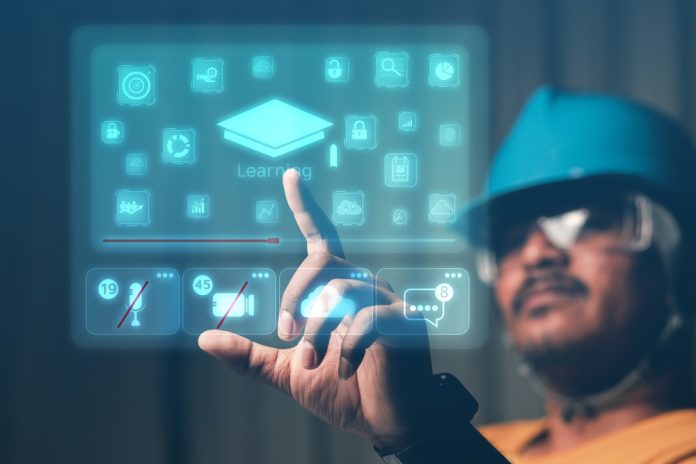
Experience is everything—think user experience (UX) or customer experience (CX). The digital era ushered in a changing of the guard: putting individuals in control of their experience. The experience must be seamless, intuitive, helpful, and engaging. This reality has moved into workplace learning with the emergence of learning experience platforms (LXPs).
The precursor to LXPs, learning management systems (LMSs) offer a more cost-effective way to deliver full-length training courses. With an LMS, the key word is “management” as these solutions prioritize administration and implementation of large-scale training geared toward course completion and attainment of required standards or competencies.
Building on the heels of an LMS and aligning with overall user expectations today, LXPs focus on the learning and the learner experience. LXPs represent a new frontier of learning. Here are three ways LXPs put learners in charge of their development.
- Learners choose their content adventure.
It may sound like an obvious statement: No learner is the same. But up until now, many methods of workplace learning were one-size-fits-all models designed to meet a particular standard or requirement. That meant each learner received the same course or training. The goal wasn’t set by the learner but determined by the organization.
As you can imagine, this approach doesn’t account for the nuances of each individual learning preference. Many of us can relate to how we’re a lot less inclined to do something when we’re told to do it, versus us wanting to it. LXPs are designed for learners to map their own personal learning journey based on their specific goals—whether that’s strengthening soft or hard skills, or related or not to their current role. The result is that learners inadvertently choose the content delivered to them and build skills that will help them master their role.
The best LXPs use recommender systems to suggest content based on learners’ choices, requirements, and interests. This is demonstrated with adaptive content. Using intelligent learner data, adaptive content tailors learner journeys based on experience and how learners respond to realistic, scenario-based questions. For example, if learners answer initial questions correctly, they can fast-track through a course. Learners who do not successfully answer questions are presented with additional scenarios until they achieve success.
- Learners learn on their terms.
Let there be no confusion: Employees want learning. But one of the historically biggest barriers to learning programs is time. Deloitte research shows that employees only have time to devote 1 percent of their week to learning. Employees need learning and development (L&D), but it must be on their terms. LXPs empower learners to learn when it’s convenient for them.
A big key to this is that LXPs offer learning in the flow of work, meaning that “learning” is easily incorporated in the individual’s daily experience. Learning, therefore, becomes so seamless that it doesn’t “feel” like the learning of the past. Instead, it mirrors all aspects of what a modern UX is like. For example, platforms can integrate with Microsoft Teams or Slack to offer learning moments within those applications.
LXPs also offer a delivery experience that complements today’s multi-channel work experience. Rather than sit through a two-hour training video on their laptop, employees can access the LXP on their mobile device and engage with the program in a method that’s the most convenient. Perhaps they’re on the train home and want to hone their feedback skills—they can easily access training at a time where they feel more engaged.
- Learners have a path to continuous learning.
McKinsey found that 41 percent of employees cited lack of career development opportunities as the top reason for leaving their previous job. LXPs ensure that learning isn’t a one-and-done activity, and instead supports the notion that learning—and ultimately development—is a continuous process for individuals. In doing so, learning can reflect learners’ evolving goals and those of the organization.
Specifically, LXPs help individuals map the required skills and competencies of their current position. Let’s look at Sam, the project manager at a B2B software company. An advanced, skills-based LXP can automatically recommend which skills Sam is likely to need as a project manager, based on market data. To refine this to match the company’s precise definition, an administrator can create a capability profile that matches the precise job spec at hand. These skills may include softer elements (such as time management and problem solving), more defined skills (such as project budgeting), or company-specific technical expertise.
From Day 1, Sam knows his skills profile and how his current skills match to the company’s capability requirements. After a year in the position, Sam realized that he’s taken to the technical aspect and collaboration sides of his job and wants to shift to an open sales role within the company. The LXP will help Sam map his learning to better position him for that new role, automating those recommendations based on a link to the HR system.
Sam’s internal mobility is just one example of how LXPs ensure learners can continuously grow within the organization. Microlearning is another. Perhaps it’s been a year since a new regulation was released, and Sara on the R&D team wants a refresher on the topic—even though she took a full course the year prior. With microlearning on an LXP, Sara can access content for a quick how-to or refresher whenever it’s needed.
Gateway Rather Than Prescription
LXPs mirror the way we seek out and engage with information in our daily lives. They offer a gateway to explore learning, rather than providing a prescriptive dose of it. The LXP’s capacity to serve up relevant material delivers personalization of learning, moving away from an inefficient one-size-fits-all approach and replacing it with individualized learning paths. We’re in the age where the user is in the driver seat. And for workplace learning, LXPs make for an effective route on the journey of development.



